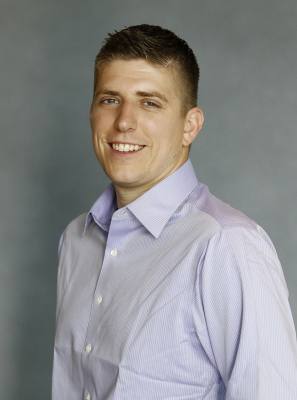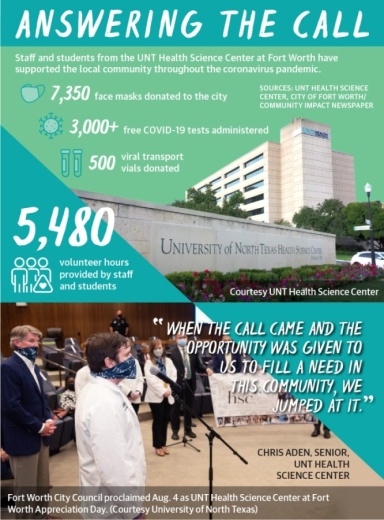Most notably, an all-volunteer force from the Health Science Center set up and operated multiple coronavirus testing sites for city and county personnel, including the first one in the city of Fort Worth in March.
In addition, students and faculty have dedicated thousands of volunteer hours toward community treatment and research, and the school has donated thousands of personal protective items in order to combat the spread of the novel coronavirus, Fort Worth Mayor Betsy Price said.
The mayor proclaimed Aug. 4 as University of North Texas Health Science Center at Fort Worth Appreciation Day.
“The first testing site we set up to test police, fire and health care workers came from our partners at the UNT Health Science Center,” Price said. “The city and residents are grateful for [their] efforts.”
The Health Science Center is made up of six schools that serve graduate students specializing in patient-centered education, research and health care.
As the number of confirmed cases of COVID-19 began to grow in Tarrant County—from just a few cases in mid-March to more than 1,000 cases by mid-April—the number of available public resources began to dwindle, Price said.
“Virus transmission grew substantially over a short period of time outpacing available public health resources,” Price said. “Faculty and students rose to the occasion by quickly assisting in the development and implementation of a robust community testing program.”
“We’ve had great support from members of the fire and police departments,” HSC President Dr. Michael Williams said.
The testing sites have provided real-world experience and opportunities that would not have been available in the classroom, added Chris Aden, a fourth-year student at the Health Science Center.
Many students were in the midst of clinical rotations at local hospitals when they were informed that those rotations would be put on hold due to the pandemic, he said.
“When the call came and the opportunity was given to us to fill a need in this community, we jumped at it,” Aden said. “We needed [that opportunity] as much as the city needed us.”
Students were involved in the testing site process from beginning to end, he said.
“It was an opportunity to learn things that we aren’t able to learn in a textbook or the classroom,” Aden said. “We’re grateful for the opportunity and humbled the city would ask for our help. Our university stands ready to help in the future.”
A number of professors at the HSC have focused their research efforts on the effect of COVID-19 on specific populations, such as adolescents and those with preexisting health conditions.
Studies have also compared the effects of COVID-19 with similar diseases like tuberculosis.
In addition, Associate Professor of Biostatics and Epidemiology Rajesh R. Nandy is using data analytics and research to study the overall impact of COVID-19.
“Even though the total number of statewide daily new cases [has] stabilized or may be showing signs of decline, there are counties where we still observe growth in the average number of daily, new reported cases,” Nandy’s report said.





